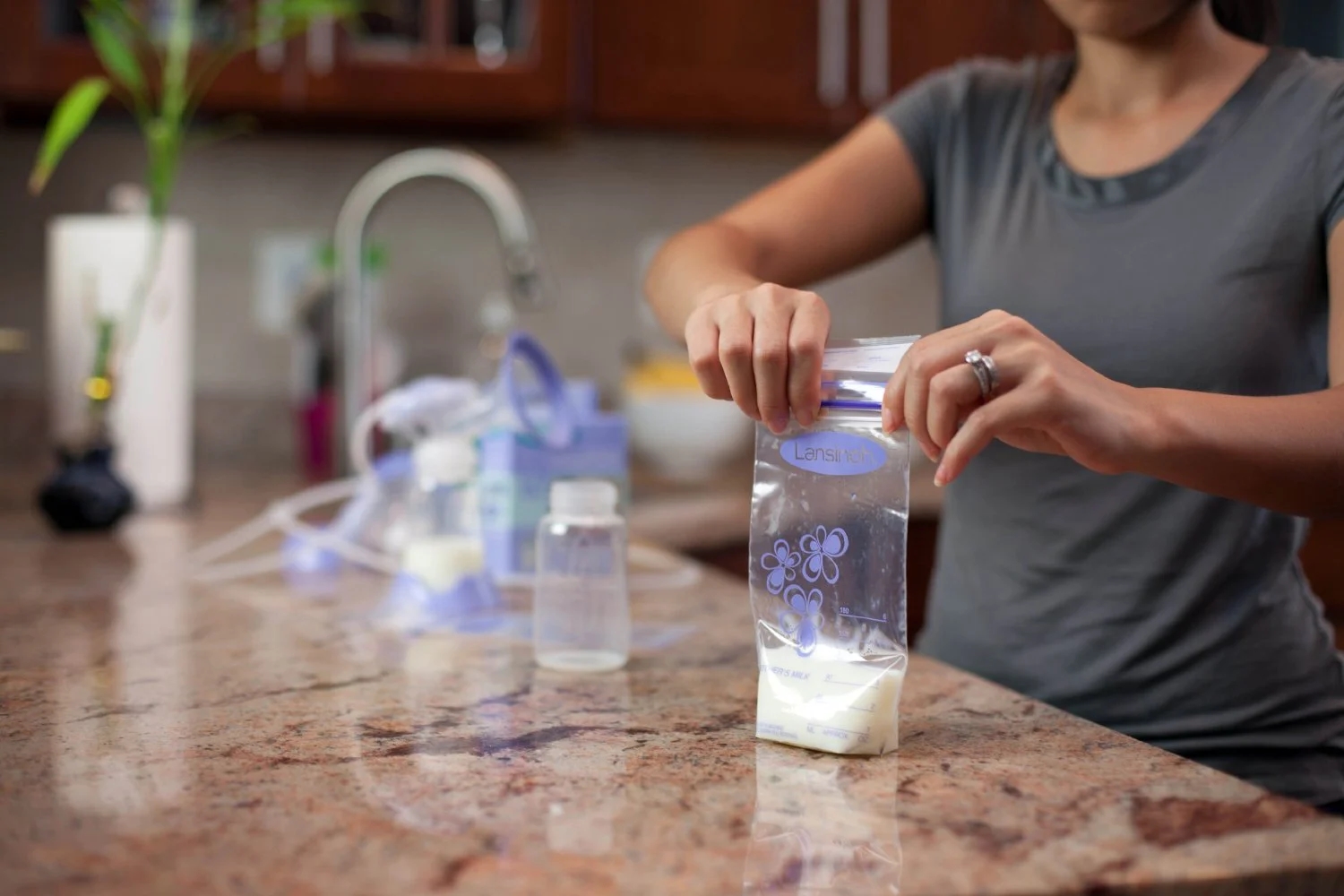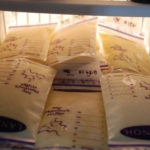Storing and preserving breast milk is an important step in the process of nurturing infants. This may seem simple, but if not done correctly, it can have a serious impact on the quality of milk and the health of the newborn. Here are some common mistakes that many mothers make when storing breast milk, which can cause diarrhea or affect the digestive system of the child.
1. Putting milk directly in the freezer
After breastfeeding, many mothers often put the milk directly into a storage bag and then into the freezer. However, doctors say that this causes a loss of nutrients from breast milk due to sudden temperature changes.
2. Incorrect storage time
Some mothers often do not label the storage time, so when they take out the milk to use, they do not remember the expiration date of the milk bags. This is extremely dangerous for the health of the child. Normally, breast milk can be stored in the refrigerator for 24 hours and in the freezer for only 5-6 months. There are milk bags that have been stored for a long time and expired without the mother knowing. This may be the reason why the child has diarrhea and is not gaining weight. Mothers should label the specific date and time before storing the milk.
3. Storing too much milk in one bag
Each breastfeeding session can yield about 200-250ml of milk, which is then poured into one bag. However, the child usually only consumes about 100-150ml per feeding, so the remaining milk is often saved for the next feeding. Doctors say that this is also a mistake that has a negative impact on the child’s health because the thawed milk should only be used within 1 hour. If left for too long, it can spoil and lose nutritional value.
4. Mixing old and new milk in the same bag
Some mothers may only pump a small amount of milk (about 90-100ml) in one session. In the next session, they pump more milk and have a habit of pouring it into the same bag to save storage bags. This is also a harmful mistake because the milk in the previous session is stored in the refrigerator, and the sudden addition of milk from the next session causes a temperature difference that can affect the nutritional value of the milk.
5. Storing milk again after it has been used
Saving leftover milk by putting it back into the freezer will cause the milk to lose its nutritional value and spoil easily. It is best to take out an amount of milk that is enough for one feeding each time.
6. Using unsterilized containers to store milk
Breast milk should be stored in clean bags or bottles to ensure hygiene and safety for the baby. With bottles, it is recommended to boil them to kill bacteria and prevent contamination from dirt and insects before storing the milk.
7. Storing milk bags next to fresh food
Many families store their child’s frozen milk together with other food in the refrigerator. Doctors say that bacteria from raw foods like meat and fish can transfer to the milk bags; blood from raw meat and fish can flow down and seep into the milk bags. This is extremely dangerous and the main cause of diarrhea in babies.

Signs that frozen milk has gone bad and should not be used
1. Leaving breast milk out for too long
Breast milk has properties that inhibit the growth of harmful bacteria. However, these properties gradually decrease over time when the milk is left outside the body. Therefore, if the milk is left at room temperature (>26 degrees Celsius) for more than 1 hour, or in the refrigerator for more than 4 days, it should not be given to the child, even if there is no noticeable foul smell or signs of spoilage. To prevent waste, it is best to freeze any excess milk as soon as possible.
2. Sour taste after thawing
Breast milk does not taste as sweet as cow’s milk or formula, but it should still have a pleasant, creamy, non-salty or sweet taste. Therefore, if the mother tastes her thawed milk and it has a sour or unpleasant smell, it may be spoiled and should not be given to the child.
3. Unpleasant smell
If breast milk is stored properly, it usually has a pleasant smell. The smell and taste of breast milk can be influenced by what the mother consumes, such as food or medication. Therefore, sometimes breast milk may have a different smell, but there is usually no cause for concern.
However, if the thawed milk has a strong unpleasant smell, like expired cow’s milk, it is likely spoiled and should not be used.
If you want to check further, you can thaw recently stored breast milk. Since the freezing time is relatively short, the milk is unlikely to be spoiled. Therefore, if the thawed milk after 5 days has an unusual smell, it is likely due to the mother’s diet. You can still feed this milk to your child, but if the baby shows signs of discomfort, it is best to change the diet and discard the milk.
Source: Tổ Quốc


































